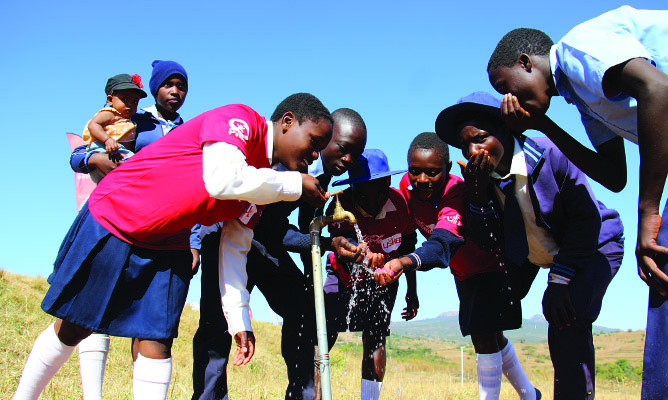
Every month, 14-year-old Angeline* endures a nightmarish week during her menstrual periods.
This is because as a rural girl living with her unemployed parents in the heart of Chaminuka District near Bindura, she has no access to proper sanitary wear like pads or tampons.
“My parents cannot afford to buy me the five dollars’ worth of pads that I need every month, so in the end I use pieces of cloth, but they are uncomfortable, and they cause bruises, and they are not effective” she said.
Without pads, she eventually misses school during her periods to save herself from the embarrassment she might face at school.
Her story is not unique to her, as recent statistics by SNV Netherlands Development organization estimates that seven in 10 girls in rural primary schools that menstruate have no access to sanitary pads in Zimbabwe, a trend attributed primarily to the acute economic challenges the country is facing, which have left many families without sustainable income bases.
According to health experts, using things like rags, and leaves can result in thrush, urinary tract infections, cancer, among other diseases.
The story of Angeline and the experiences of other rural girls and young women recently came in focus in Mashonaland Central, one of the country’s poorest provinces, which also has higher cases of gender based violence, according to research by various NGOs.
- Chamisa under fire over US$120K donation
- Mavhunga puts DeMbare into Chibuku quarterfinals
- Pension funds bet on Cabora Bassa oilfields
- Councils defy govt fire tender directive
Keep Reading
At an event hosted by the Institute of Young Women in Development (IYWD) at Madziwa Township near Bindura last month, hundreds of villagers converged with government officials, local police and health officials, where they discussed various issues around GBV, and how it was not limited to physical and sexual harassment, but extended to the welfare of the girl and boy children.
On the inaccessibility of sanitary pads, young girls equated that to GBV, as according to the Constitution, government has an obligation to provide to every citizen and permanent resident of Zimbabwe, the right to have access to basic health-care services, including reproductive health-care services.
It is based on this constitutional provision that young girls that spoke on the sidelines of the IYWD event appealed to government to provide free sanitary pads, or subsidise the price to make them affordable.
“It is gender based discrimination if our school is affected because of the unavailability of the necessary healt-related things like sanitary pads.”
Organizing for Zimbabwe, which also works closely with IYWD, has since started a campaign to advocate for the provision of free sanitary pads in schools.
This comes at a time when the Finance ministry has allocated more resources to Homa Affairs and Defence ahead of health for the 2017 budget.
Home Affairs got $364 million and Defence ministry was allocated $340,5 million while the health sector got $244 million.
Apart from the sexual-reproductive health issues, the IYWD event proved that collaborations with all stakeholders is crucial as police, together with IYWD members comprising young women, joined hands and held a roadblock along the Mt Darwin road where they handed out fliers with anti-GBV messages and educated motorists on the effects of GBV.
IYWD is one of Zimbabwe’s NGO’s working in communities to empower women and has registered considerable success as it has established community-based structures that work on various issues that affect young women in rural areas.











